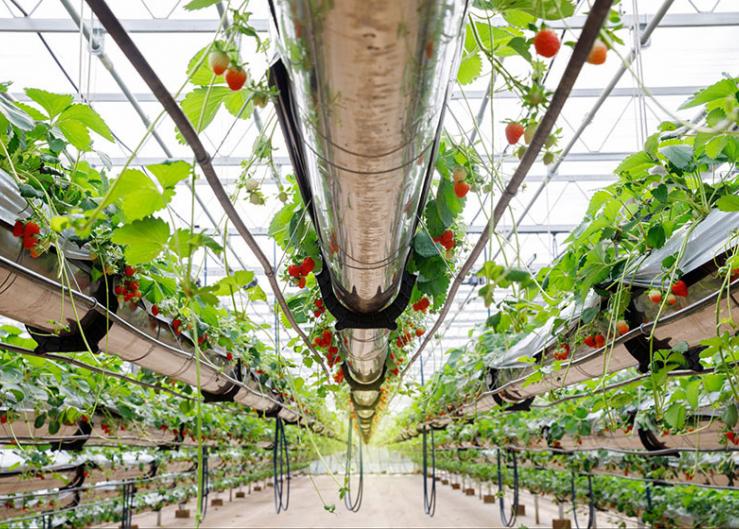Plenty Unlimited Inc. opened the world's first farm to grow indoor, vertically farmed berries at...
Driscoll's to Grow Strawberries in World's Largest Indoor Vertical Farm

Indoor vertical-farming company Plenty Unlimited Inc. confirmed plans with the City of Richmond to build the world’s largest indoor vertical farming campus in Virginia with a $300 million investment in Chesterfield County’s Meadowville Technology Park.
Plenty recently secured $400 million in financing, the largest investment to date for an indoor farming company. They plan to complete the Richmond Farm Campus over the next six years, utilizing its 200 patent assets to grow produce year-round in grow towers that will be more than 30 feet tall.
What’s more, the first farming site slated for the expansive 120-acre campus will be a Driscoll's berry farm that will grow the first indoor, vertically farmed strawberries at scale. Driscoll's farm will be completed by winter 2023-2024.
“Indoor farming is fundamentally changing agribusiness with environmentally and socially responsible farming technologies that make local, sustainable produce available to more communities,” said Virginia Secretary of Commerce and Trade Caren Merrick. “Plenty Unlimited LLC will be able to easily grow and distribute fresh products to thousands of customers from its new campus in Chesterfield County.”
California leads the country in fresh strawberry production, growing 90% of strawberries annually, according to the USDA. Florida trails in second, producing about 8%, followed by New York, North Carolina, Oregon and Washington. Driscoll's and Plenty’s new endeavor will put central Virginia on the strawberry map and build Virginia’s growing reputation for indoor farming. This year alone, both AeroFarms and Beanstalk opened indoor farming operations in Virginia.
Editor’s Take:
Vertical or indoor farming could be a serious competitor for the production of specialty crops like strawberries. California, the nation’s largest producer, has created rules and regulations that severely restrict the ability of producers in that state to flourish. Add to that the continuing challenge for California producers to obtain enough water at a reasonable cost and the future becomes even more uncertain for them. Disruptive technologies, like vertical farm units, could be a great solution to threats like those in California. It also removes weather from the equation. However, it will be a long, long time, if ever, before crops like corn, soybeans, wheat, rice or cotton will be grown on a commercial scale in such units.








